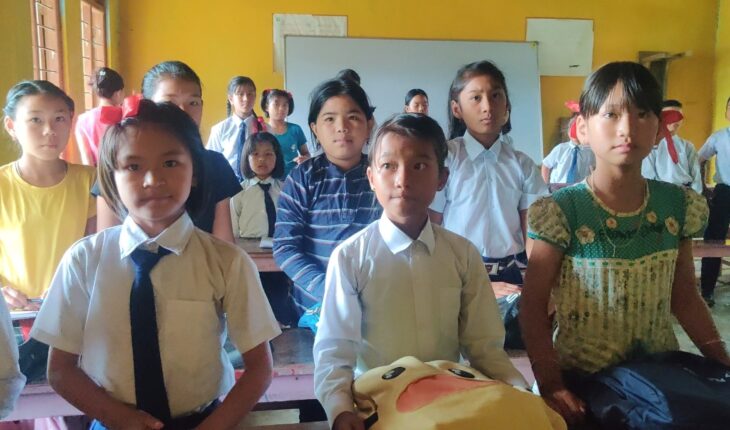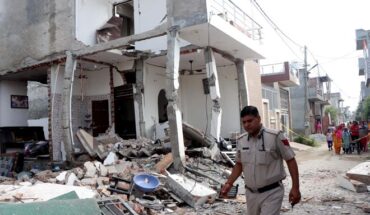Nestled a mere three kilometers from the conflict zone in Manipur, where Meitei community’s ‘village defence volunteers’ have endured numerous tragic losses to suspected Kuki militants, Phayeng High School emerges as a symbol of strength and hope. Positioned strategically near the Uripok-Kangchup main road, this institution serves students from regions like Phayeng, Kadangband, Kangchup, Ireng, and other neighboring areas. Despite the adversity, approximately 140 students continue their pursuit of education here daily.
In an environment once characterized by nature’s serenades, the school’s surroundings are now marred by the disturbing cacophony of gunshots, blasts, and sirens. The violence engulfing Manipur has left an indelible mark on the psyches of these students. As multiple schools in areas like Kangchup and Singda, including Little Seed and Smartstalk, have fallen victim to the fiery wrath of mobs, Phayeng High School has witnessed an influx of students. Its location, within a predominantly Meitei region, has provided a semblance of safety from potential Kuki onslaughts.
However, the challenges plaguing Phayeng High School extend beyond the external strife. A burgeoning crisis is the significant staffing shortage that has deterred many parents from admitting their children here, even though it’s a government-endorsed institution.
Angom Tomba, Phayeng High School’s diligent Headmaster-in-charge, is deeply perturbed by this internal crisis. Operating with a slender team of ten teachers, including himself, the establishment faces immense challenges in delivering quality education. Astonishingly, a single primary teacher is saddled with the responsibility of teaching five grades. Tomba expressed, “We’re in dire need. While we should have five primary teachers, we’ve managed with just one. The authorities have yet to provide reinforcements.” Taking proactive measures, Tomba has even employed a local teacher, covering her wages from his own finances.
Tomba, who walked the corridors of Phayeng as a student, harbors ambitions of propelling the school to unparalleled heights. “This institution is close to my heart,” he reflected, “My vision is to uplift Phayeng to match the state’s top-tier schools. But to realize this dream, we urgently need an influx of educators,” he emphasized, noting the school’s requirement for arts, science, and primary teachers.
While the school boasts a roll call of 180 students, the recent wave of violence meant that 60 of these pupils hail from institutions crippled by the ongoing conflict. Tomba shared, “We distributed 100 admission forms. However, the realization of our limited teaching staff meant only 60 enrollments. The teacher shortage is palpable, affecting our credibility.”
Moreover, logistical challenges compound the school’s problems. Students from places like Kadangband village, situated about three kilometers away, now face perilous commutes. The route to Phayeng High School from Kadangband has transformed into a high-risk zone, with crossfires becoming all too common. For the Meitei community, this has meant complete isolation from certain areas, like the Uripok Kangchup road to Kadangband village.
Amid these pressing challenges, it’s the students who bear the brunt. Telheiba, a determined tenth-grader, gave voice to the students’ concerns. “The glaring gaps in faculty, especially in pivotal subjects, jeopardize our future. We urgently appeal to the authorities for timely intervention,” he passionately conveyed.
Phayeng High School’s narrative underscores the broader issues gripping the region: a fervent desire for education battling against the twin adversities of conflict and internal shortages. The question echoing in every classroom and household is simple: Will the authorities rise to ensure that education, the bedrock of the future, remains unshaken?





